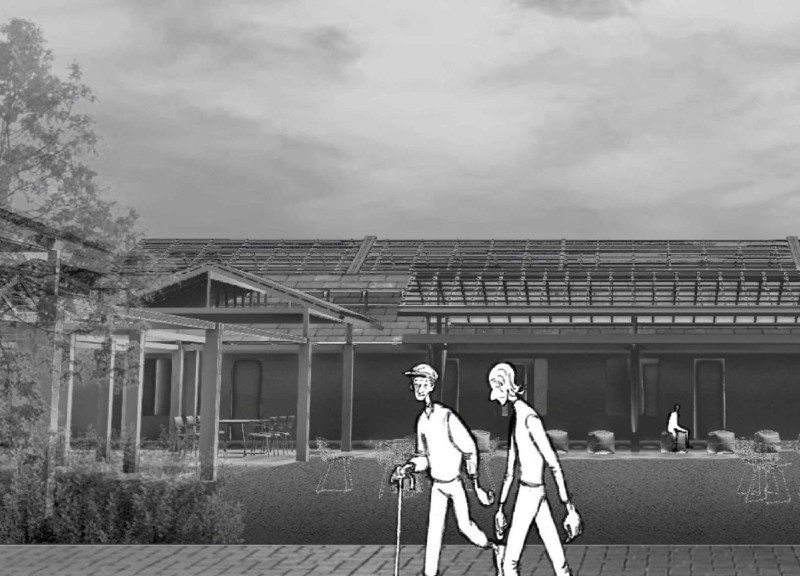5 key facts about this project
## Project Overview
Located in Bangkok, Thailand, the design aims to enhance community engagement among varied age groups, particularly within a senior living environment. The conceptual framework of this project addresses themes of memory, relationships, and isolation, with an emphasis on fostering meaningful spatial experiences for residents. By analyzing the innovative concepts and spatial organization, this report outlines the project's approach to creating a vibrant living environment.
## Spatial Strategy
The spatial composition is organized into distinct clusters that facilitate communal living while preserving personal privacy. The master plan delineates zones for residential units, communal areas, and pathways, promoting a sense of belonging while encouraging interactions among residents. Each cluster functions as a mini-community, featuring versatile communal spaces designed for workshops, activities, and social gatherings. Additionally, the incorporation of natural ponds supports stormwater management and enriches the ecological footprint of the development, further enhancing social connectivity through shared outdoor experiences.
## Materiality and Sustainability
The selected materials emphasize both aesthetic qualities and functional requirements, contributing to the project's sustainability goals. Structural elements utilize concrete for durability, while polycarbonate panels create translucent surfaces that soften light and enhance visual appeal. Glass is incorporated for windows and communal spaces, reinforcing connections to the surrounding environment. Treated wood provides warmth and a natural aesthetic, while stone and paving stones ensure durability in outdoor pathways. The integration of natural ponds not only addresses environmental concerns but also fosters biodiversity, enhancing the overall livability of the development.






















































